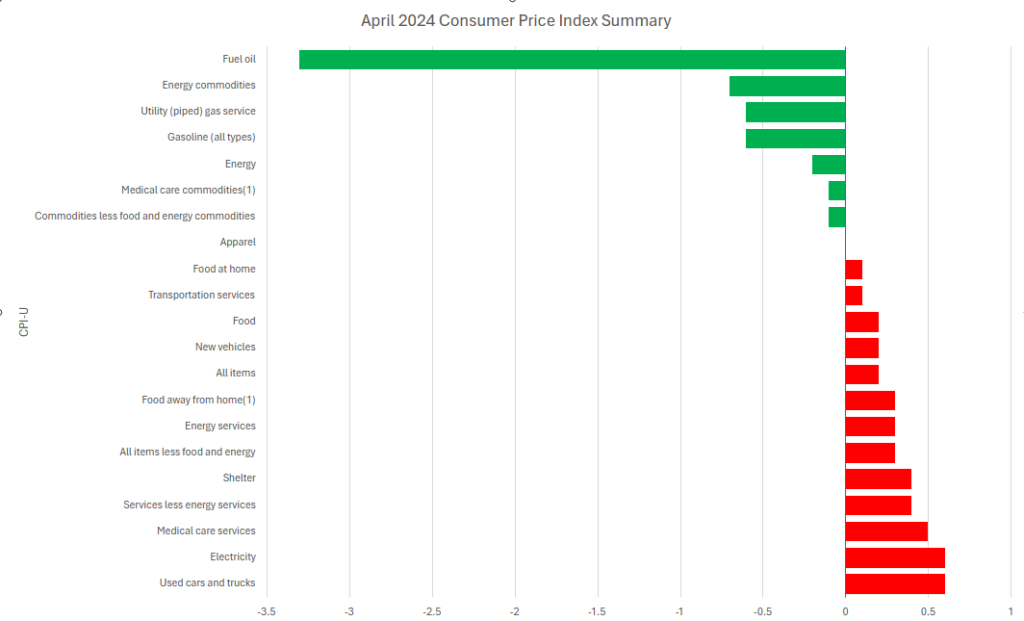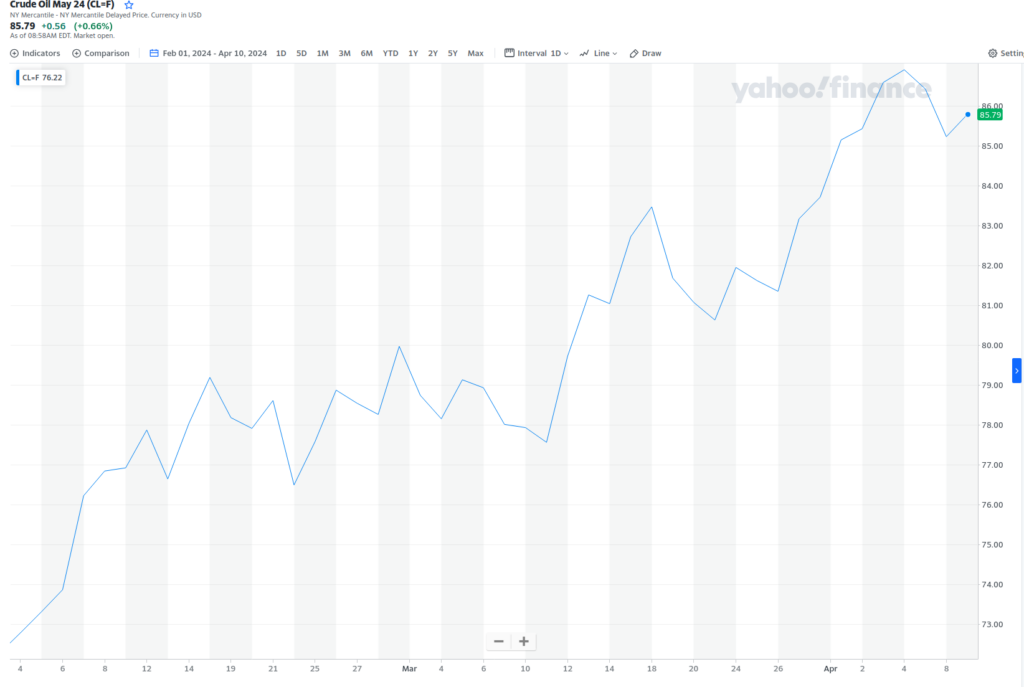The BLS released the CPI report for March and it shows inflation continues to run hot. From the BLS:
CONSUMER PRICE INDEX - MARCH 2024
The Consumer Price Index for All Urban Consumers (CPI-U) increased 0.4 percent in March on a seasonally adjusted basis, the same increase as in February, the U.S. Bureau of Labor Statistics reported today. Over the last 12 months, the all items index increased 3.5 percent before seasonal adjustment.
The index for shelter rose in March, as did the index for gasoline. Combined, these two indexes contributed over half of the monthly increase in the index for all items. The energy index rose 1.1 percent over the month. The food index rose 0.1 percent in March. The food at home index was unchanged,
while the food away from home index rose 0.3 percent over the month.
The index for all items less food and energy rose 0.4 percent in March, as it did in each of the 2 preceding months. Indexes which increased in March include shelter, motor vehicle insurance, medical care, apparel, and personal care. The indexes for used cars and trucks, recreation, and new vehicles
were among those that decreased over the month.
The all items index rose 3.5 percent for the 12 months ending March, a larger increase than the 3.2-percent increase for the 12 months ending February. The all items less food and energy index rose 3.8 percent over the last 12 months. The energy index increased 2.1 percent for the 12 months ending
March, the first 12-month increase in that index since the period ending February 2023. The food index increased 2.2 percent over the last year.
Here’s the inflation good and bad news in graphical form.

It’s ironic that Fuel oil and energy commodities shows declines while the past few weeks we’ve seen energy commodities spike up. The real pain is in used cars & trucks, electricity, medical care services and shelter to name a few.
Here’s a chart of oil from finance.yahoo.com from Feb 1 thru Apr 10. We think inflation will be higher for April when the report comes out in May next month.

Many people, us included, have been waiting for a recession caused by massive unemployment but if employee attrition is happening normally through baby boomer retirements then businesses have no reason to let go of labor since it’s already being depleted.
If this thesis is correct then retained employees continue to get paid and retired employees continue to spend through social programs of social security and medicare. Two groups of people putting pressure on goods and services in the economy. Is our thesis correct?
We won’t know for sure but 2024 is peak boomer retirements, the slowdown in retirements will begin next years so stay tuned, stay profitable and stay solvent…